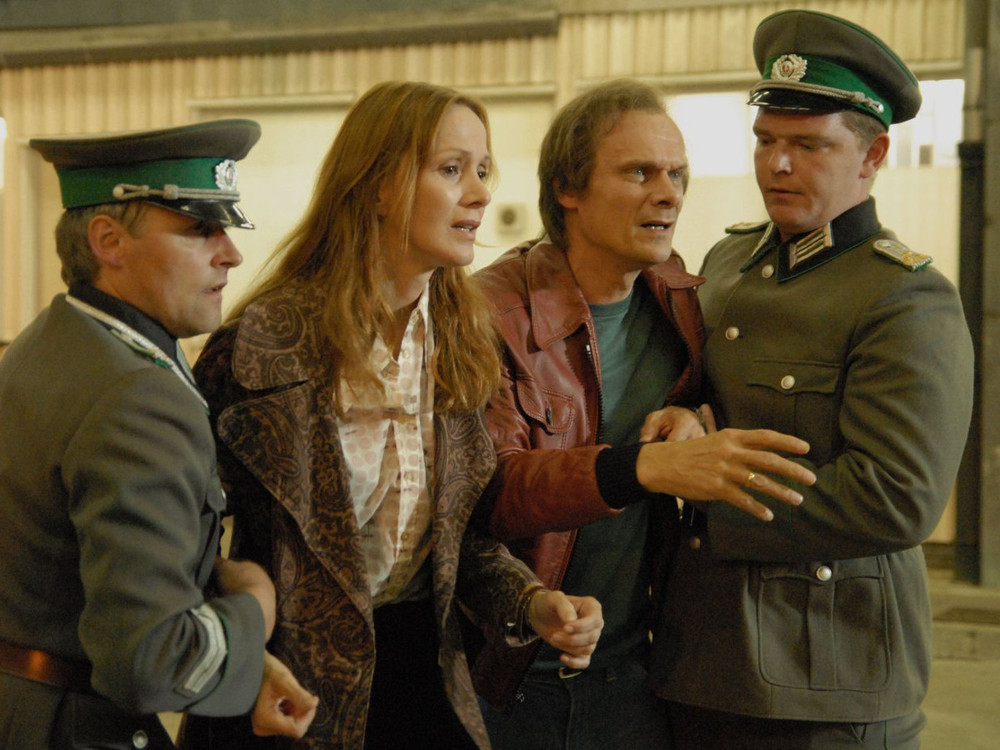Discover The Best DDR Movies & TV Shows
Can cinema truly capture the soul of a vanished nation? The cinematic portrayals of the German Democratic Republic (GDR, or East Germany) offer a complex and often poignant lens through which to examine a society shaped by division, surveillance, and the ever-present weight of the Berlin Wall. From the rubble of postwar Berlin to the burgeoning underground music scene, these films offer glimpses into a world both familiar and profoundly alien.
The DEFA film studios, the state-owned cinematic powerhouse of East Germany, churned out hundreds of films between 1946 and 1992. These productions, ranging from propagandistic pieces to surprisingly nuanced social commentaries, offer a unique historical record. While some aimed to bolster the socialist narrative, others subtlyor sometimes overtlycritiqued the realities of life under the watchful eye of the Stasi, the GDR's secret police. Films like Heier Sommer (Hot Summer), a 1968 romantic comedy set against the backdrop of a holiday camp, offered escapism, while others, like those exploring the lives of ordinary citizens navigating the complexities of everyday life in the GDR, provided a more grounded perspective.
| Name | Gerhard Gundermann |
|---|---|
| Birth Date | February 21, 1955, Hoyerswerda, East Germany |
| Death Date | June 21, 1998, Spreetal, Germany |
| Profession | Singer-songwriter, Rock musician, Author, Coal miner |
| Known For | Music reflecting life in East Germany, open criticism of the Stasi, balancing artistic expression with a working-class life. |
| Reference | Gundermann Lieder |
The legacy of the GDR continues to resonate in German cinema, with films like The Lives of Others (2006) offering a chilling depiction of the Stasi's pervasive surveillance. This Academy Award-winning film explores the moral dilemmas faced by a Stasi officer assigned to monitor a playwright and his actress lover. The film's success underscores the enduring fascination with this period of German history and its impact on individual lives.
Beyond the Stasi, films about East Germany delve into a wide range of themes, including the dreams and disillusionments of youth, the struggles of artists and intellectuals, and the impact of political ideology on everyday life. Sonnenallee (Sun Alley), a 1999 coming-of-age story set in 1970s East Berlin, uses humor and nostalgia to depict the lives of teenagers navigating the restrictions of the GDR while embracing Western pop culture.
Documentaries and historical dramas also play a crucial role in preserving the memory of East Germany. Films like Bornholmer Strae (2014) dramatize the chaotic events of November 9, 1989, when the Berlin Wall finally fell. These films provide valuable insights into the historical context and the human stories behind this pivotal moment in German history.
Thirty years after the fall of the Berlin Wall, the cinematic landscape continues to grapple with the legacy of the GDR. Filmmakers explore the complexities of memory, the challenges of reunification, and the ongoing debate about the portrayal of East German life. Some argue that certain films romanticize the past, while others criticize their focus on Stasi activities, overlooking the everyday experiences of ordinary citizens. These diverse perspectives enrich the cinematic conversation and offer a multifaceted understanding of this vanished nation.
- Exclusive Latest On Gia Duddy Erome Content Whats New
- Vegamovies Streaming Your Guide To Movies Tv Shows In India
From the poignant dramas to the lighter comedic portrayals, films about East Germany offer a compelling window into a vanished world. They invite us to confront the complexities of a divided nation, the human cost of political ideology, and the enduring power of memory. Whether exploring the lives of artists, soldiers, or everyday citizens, these films offer a vital lens through which to understand the lasting impact of the GDR on German history and identity. They remind us that behind the political rhetoric and historical narratives lie individual lives, dreams, and struggles that continue to shape the present.
Even seemingly lighthearted films like Heier Sommer, with its 3.4 million viewers in the GDR, offer a glimpse into the social fabric of the time. The desire for escape, even within the confines of a state-sanctioned holiday, speaks volumes about the underlying tensions and desires of a population yearning for something more. The interplay between individual lives and the overarching political context remains a recurring theme in these cinematic explorations, offering a rich tapestry of human experience against the backdrop of a divided nation.
And as the digital age reshapes how we consume media, even classic DDR films find new life through streaming services. This accessibility ensures that these stories continue to reach new audiences, fostering dialogue and understanding across generations. From Das Leben der Anderen to Good Bye, Lenin!, these films invite us to delve into a world shaped by unique historical circumstances, a world that continues to fascinate and provoke reflection.



Detail Author:
- Name : Gracie Jacobs
- Username : sandra.bernhard
- Email : ibernhard@ritchie.com
- Birthdate : 1981-07-31
- Address : 597 Celestino Fall Suite 537 Port Annettestad, TN 24694-6066
- Phone : (754) 226-9240
- Company : Keebler, Fadel and Parker
- Job : Multi-Media Artist
- Bio : Quo ut sapiente assumenda et. Qui dolorem quas tempora. Consequatur quis mollitia voluptas asperiores. Doloribus facilis consequatur voluptas blanditiis.
Socials
tiktok:
- url : https://tiktok.com/@rchristiansen
- username : rchristiansen
- bio : Et incidunt sint assumenda cum. Esse at ea nihil aspernatur quo omnis quia.
- followers : 4224
- following : 1526
instagram:
- url : https://instagram.com/rahul_christiansen
- username : rahul_christiansen
- bio : Laboriosam et est quia nemo perspiciatis error. Qui nesciunt natus ad est.
- followers : 2749
- following : 2806